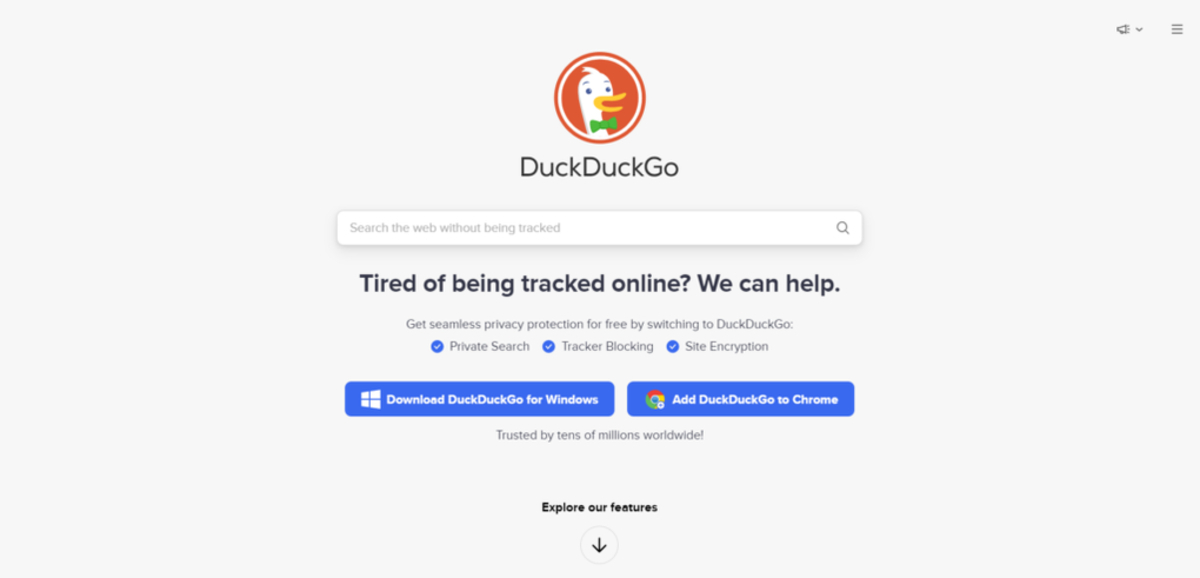Introduction
The Tor Browser is a powerful tool that has gained significant attention for its ability to provide anonymous and secure browsing experiences. It stands as a beacon of privacy in an era where online surveillance and data tracking have become prevalent concerns for internet users. By offering a means to circumvent censorship and access the internet without revealing one's identity, the Tor Browser has become a vital resource for individuals, journalists, activists, and anyone seeking to safeguard their online privacy.
The Tor Browser is built upon the foundation of the Tor network, which is a decentralized network that directs internet traffic through a global volunteer overlay network consisting of more than seven thousand relays. This network obscures a user's location and usage from anyone conducting network surveillance or traffic analysis. As a result, the Tor Browser enables users to access websites and online services that may be blocked by their local internet service providers or governments.
In addition to its privacy features, the Tor Browser also provides a layer of security by preventing websites from tracking a user's physical location and browsing habits. This is achieved through a series of virtual tunnels that encrypt and route internet traffic through multiple servers, effectively concealing the user's identity and online activities.
The Tor Browser's impact extends beyond individual users, as it has become an essential tool for journalists and activists working in regions where freedom of speech is restricted. By allowing them to communicate and access information without fear of reprisal, the Tor Browser has played a pivotal role in promoting freedom of expression and facilitating the free flow of information.
In the following sections, we will delve into the origins of the Tor Browser, explore the dedicated team behind its development, and examine the future prospects of this groundbreaking tool. Through this exploration, we aim to shed light on the remarkable journey of the Tor Browser and the individuals who have contributed to its evolution.
The Origins of the Tor Browser
The origins of the Tor Browser can be traced back to the early 2000s, emerging from the pioneering work of computer scientists and researchers at the United States Naval Research Laboratory. The project initially aimed to develop a secure and private means of internet communication, with a focus on protecting government communications. This endeavor led to the creation of what would later become known as the Tor (The Onion Router) network, a system designed to enable anonymous communication over the internet.
The fundamental concept behind the Tor network was to establish a decentralized infrastructure that could conceal the origins and destinations of online communications. This was achieved through a process of routing data through a series of volunteer-operated servers, known as relays, which are spread across the globe. Each relay within the network only knows the IP address of the relay that sent it data and the IP address of the relay to which it should send the data next. This layered encryption and redirection of traffic effectively obfuscate the user's identity and location, providing a high degree of anonymity.
As the Tor network gained traction, the need for a user-friendly interface to access this powerful tool became apparent. This led to the development of the Tor Browser, which integrated the necessary components to connect to the Tor network and provided a seamless browsing experience for users. The browser was designed to simplify the process of accessing the Tor network, allowing individuals to harness its privacy and security benefits without requiring advanced technical expertise.
The release of the Tor Browser marked a significant milestone in the evolution of online privacy and security. It offered a practical solution for individuals seeking to protect their online activities from surveillance, censorship, and tracking. Moreover, the open-source nature of the Tor Browser fostered a community of developers and enthusiasts who contributed to its ongoing improvement and refinement.
In essence, the origins of the Tor Browser are deeply rooted in the pursuit of privacy, security, and freedom of expression. Its inception as an offshoot of the Tor network exemplifies the commitment to empowering individuals with the means to navigate the internet without compromising their privacy or exposing themselves to unwarranted scrutiny. This commitment continues to drive the development and enhancement of the Tor Browser, ensuring that it remains a vital tool for safeguarding online privacy and promoting unrestricted access to information.
The Development Team
The development of the Tor Browser is made possible by a dedicated and diverse team of individuals who are committed to advancing the principles of online privacy, security, and freedom of expression. This team comprises a network of developers, researchers, volunteers, and contributors from around the world, united by a shared vision of empowering users with the tools to navigate the internet without compromising their privacy.
At the core of the development team are the Tor Project members, who oversee the ongoing enhancement and maintenance of the Tor Browser. The Tor Project is a nonprofit organization that is responsible for the development and distribution of the Tor software, including the Tor Browser. This team of experts is driven by a steadfast commitment to open-source principles, transparency, and the protection of user privacy. Their collective efforts have resulted in the continuous improvement of the Tor Browser, ensuring that it remains at the forefront of privacy-focused browsing solutions.
In addition to the core development team, the Tor Browser benefits from the contributions of a global community of volunteers and enthusiasts. These individuals play a crucial role in testing, refining, and promoting the Tor Browser, thereby expanding its reach and impact. Their diverse skill sets and perspectives enrich the development process, fostering innovation and adaptability within the Tor ecosystem.
Furthermore, the development team collaborates with security researchers and privacy advocates to address emerging threats and vulnerabilities, ensuring that the Tor Browser remains resilient against potential attacks and surveillance attempts. This collaborative approach underscores the team's unwavering commitment to staying ahead of evolving security challenges and safeguarding the privacy of Tor Browser users.
The inclusive and collaborative nature of the development team reflects the ethos of the Tor Project, which embraces a community-driven model for advancing privacy and security on the internet. By harnessing the collective expertise and passion of its members, the development team continues to fortify the Tor Browser as a trusted tool for individuals, journalists, activists, and organizations seeking to protect their online activities and uphold the fundamental right to privacy.
In essence, the development team behind the Tor Browser embodies a global network of individuals united by a shared mission to empower users with a secure, private, and unrestricted browsing experience. Their collective dedication and expertise drive the evolution of the Tor Browser, ensuring that it remains a beacon of privacy and freedom in an increasingly interconnected digital landscape.
The Future of the Tor Browser
The future of the Tor Browser holds immense promise as it continues to evolve in response to the dynamic landscape of online privacy, security, and digital freedom. As technology advances and the challenges of internet surveillance and censorship persist, the Tor Browser is poised to play a pivotal role in empowering individuals and communities with robust privacy-enhancing capabilities.
One of the key areas of focus for the future development of the Tor Browser lies in enhancing user accessibility and experience. Efforts are underway to streamline the onboarding process for new users, making it easier for individuals to harness the privacy and security benefits offered by the Tor network. By prioritizing user-friendly interfaces and intuitive features, the Tor Browser aims to broaden its appeal and reach a wider audience seeking to safeguard their online activities.
Moreover, the development team is committed to advancing the performance and efficiency of the Tor Browser. This includes optimizing the browsing speed and overall responsiveness of the browser, ensuring that users can enjoy a seamless and efficient browsing experience while benefiting from the anonymity and privacy protections afforded by the Tor network.
In response to emerging security threats and evolving surveillance techniques, the future iterations of the Tor Browser will continue to integrate robust security measures and privacy enhancements. This proactive approach involves collaborating with security experts and leveraging cutting-edge encryption technologies to fortify the browser's defenses against potential vulnerabilities and attacks. By staying ahead of the curve in cybersecurity, the Tor Browser remains steadfast in its commitment to shielding users from intrusive surveillance and data exploitation.
Furthermore, the future of the Tor Browser encompasses a concerted effort to expand its compatibility and integration with various platforms and devices. This includes optimizing the browser for mobile usage, enabling individuals to access the Tor network and browse anonymously on their smartphones and tablets. By embracing a multi-platform approach, the Tor Browser seeks to empower users across diverse technological environments, reinforcing its position as a versatile and accessible privacy tool.
As the digital landscape continues to evolve, the Tor Browser remains dedicated to upholding the principles of privacy, security, and freedom of expression. Its future trajectory is shaped by a commitment to innovation, inclusivity, and the relentless pursuit of a more secure and private internet for all. By embracing these principles, the Tor Browser stands as a beacon of hope in an era where online privacy and digital rights are of paramount importance.
In essence, the future of the Tor Browser is characterized by a steadfast dedication to empowering individuals with the means to navigate the internet without compromising their privacy or exposing themselves to unwarranted scrutiny. As it continues to adapt and innovate, the Tor Browser remains a vital tool for safeguarding online privacy and promoting unrestricted access to information, ensuring that its impact resonates across global communities and transcends technological boundaries.

























